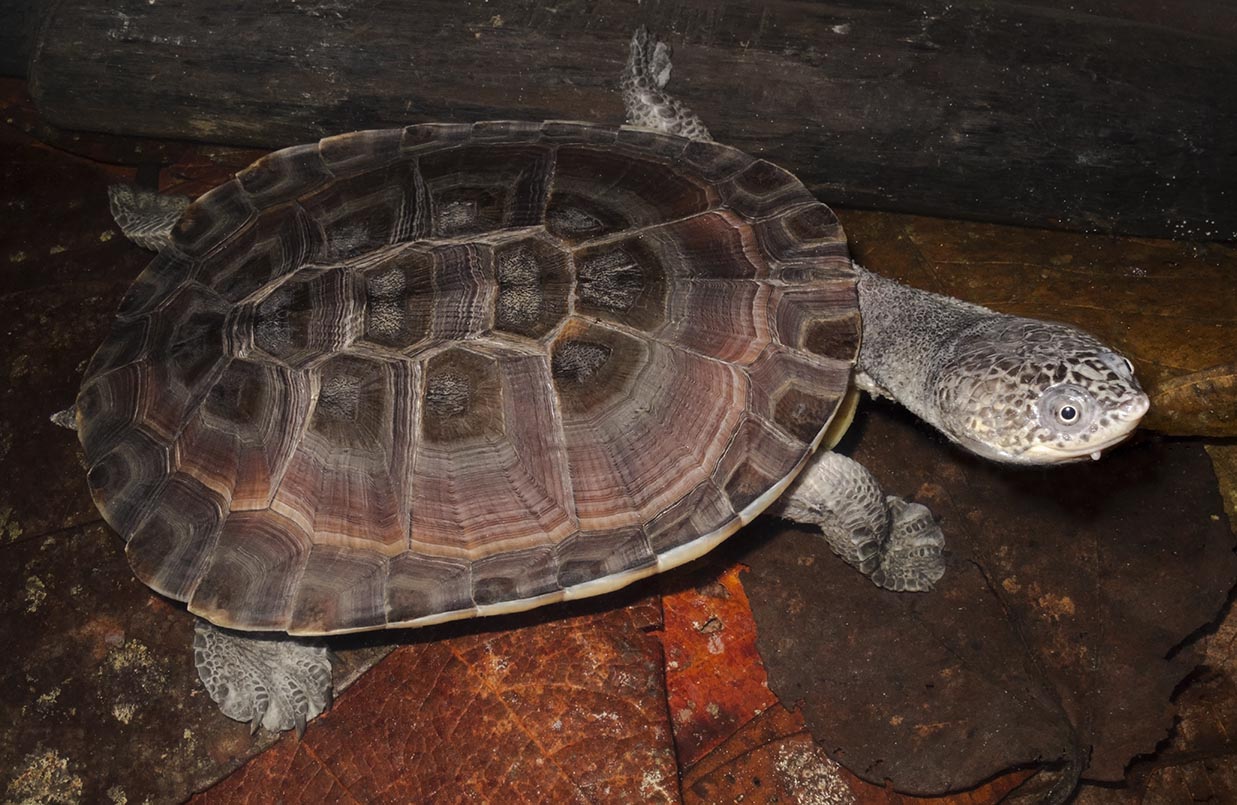Long-Term Tracking of Adult Loggerhead Turtles (Caretta caretta) in the Mediterranean Sea
Three adult-sized Loggerhead Turtles (Caretta caretta), captured incidentally by bottom trawlers, were tracked by satellite in the Mediterranean Sea for a substantial part of their annual cycle, including the period preceding nesting. The three turtles performed long-distance movements that were variable between individuals but shared common features such as seasonal migration. Very prolonged dives (up to over 300 min) were associated with temperature drops to below 18°C , likely an overwintering strategy. Our findings integrate recent tracking data on the postnesting migrations of Mediterranean Loggerhead Turtles, documenting the movement patterns made during the poorly known nonreproductive phase.Abstract

Reconstructed movements of turtle A after her release in November 2004. The diamond indicates the release site. The star indicates her last location on 23 August 2005, 21 days after the previous one. The lack of intermediate locations prevented route reconstruction in this period. The inset shows details of the turtle's movements in Killini Bay and in Kyparissia Bay, Greece, during December 2004 (filled circles).

Maximum daily dive durations (black dots) and PTT-determined water temperatures (daily means; white dots) recorded throughout the tracking period for the three turtles. Daily temperatures values substantially higher than the surrounding values are likely attributable to basking behavior at the surface (Sapsford and van der Riet, 1979). Maximum dive durations of zero minutes refer to cases in which the turtle remained at the surface or, more probably, did not emerge at all for the entire 4-h period.

Reconstructed tracks of turtles B (filled circles) and C (filled triangles). Diamonds indicate the release sites. The inset shows turtle B movements along the coast of southern Peloponnese and in the Saronic Gulf, Greece (filled circles).
Contributor Notes
